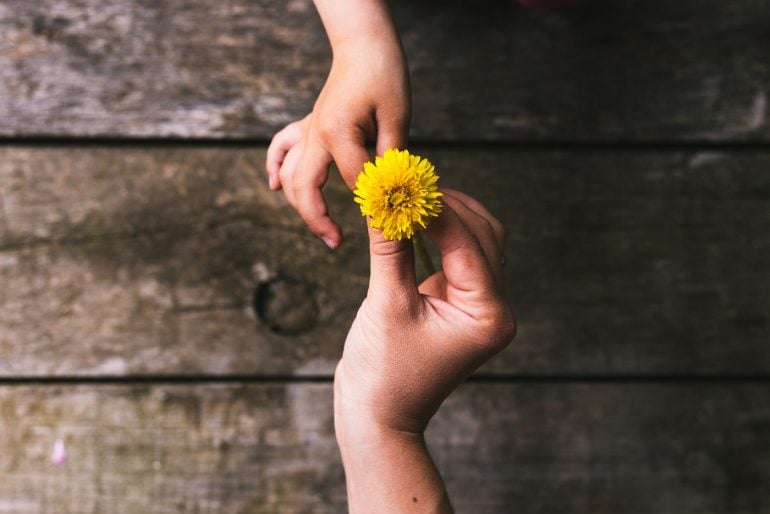Want to know how to be happy in life? Just be kind.
Research indicates that people who engage in acts of kindness actually become happier over time. And it’s good for your health, too.
The connection between kindness and happiness
“Kindness and generosity have many health benefits including lowering blood pressure, reducing anxiety and depression, and enhancing overall satisfaction in life,” says Shilagh Mirgain, PhD, UW Health psychologist.
“When you commit to being kind, you can help make the world a better place and improve your own health.”
Mirgain offers four basic suggestions for practicing kindness in your life — and the effects can be profound.
1. Pay it forward through random acts of kindness
You may have heard about “pay it forward” – it’s an old concept, even dating back to ancient Athens, and repeated by the likes of Benjamin Franklin and Ralph Waldo Emerson.
When someone does something nice for you, you may not be able to pay them back for the deed. But, you can in turn do something nice for someone else through small, random acts of kindness.
“Compliments are like little acts of love,” comments Mirgain. “An unexpected, but genuine compliment can turn a person’s day around. And, it makes you feel good as well.” Mirgain adds,
“If you’re on the receiving end of a compliment – “That was a good presentation” or ‘That’s a nice sweater’ – don’t give into the temptation to dismiss it with an offhand remark – ‘Oh, I just threw that together’ or ‘Oh, this old thing.’ It can diminish the compliment. Instead, just say, ‘Thank you’ and take the compliment in the spirit it was given.”
If you feel like doing more than offering a compliment to someone else, consider paying for the order of the person behind you like at the drive-through. Leave a little note for your spouse or kids. Help an elderly neighbor rake leaves.
The simple, unexpected gestures can completely change someone’s day.
2. Volunteer
When you volunteer your time for a particular charity or cause, you not only make a positive impact on the organization, you help yourself as well.
Find an organization where you can donate your time, give to a group in need, such as a food pantry or animal shelter, or contribute money to a worthy cause.
Studies have shown that volunteering by doing something concrete and meaningful helps individuals feel more socially connected, which can help ward off loneliness and depression.
It also promotes positive mental health and can even contribute to better physical health as well, including lower blood pressure.
3. Say thank you
“Gratitude is the inward feeling of kindness received.” – Henry VanDyke
One of the greatest contributing factors to happiness is gratitude. Show your gratitude for the individuals in your life by telling them. Write a letter explaining why you’re grateful for them.
Pick someone you may have never properly thanked who made a significant contribution to your life, and then meet them in person or call them on the phone and read them your gratitude letter. When you do, the benefits can boost your mood even six months later.
4. Offer your unconditional support
Connecting with and supporting others has one of the biggest impacts on life happiness.
“Listen to the individuals in your life, encourage them to share details about both their hopes and the good things happening in their life, and offer words of encouragement,” says Mirgain.
When you are supportive of their dreams and goals, it can give them the strength they need to achieve those goals. Communicate how much you care and express your belief in them in small and large ways, and especially at those times when they may have trouble believing in themselves.
“It can have the mutual benefit of being good for you too, helping you remember your own value, and that you have something important to offer.”









